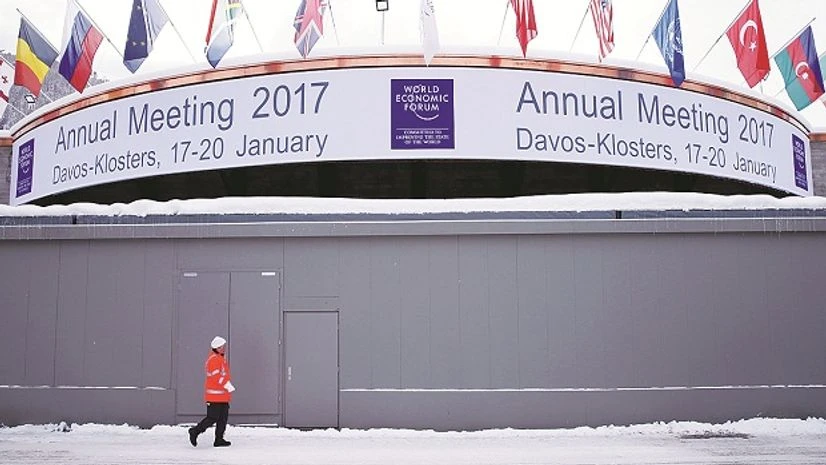A strengthening dollar and a "race to the bottom" on taxes, deregulation and trade policy are the major risks to an otherwise brightening global economy, financial leaders said on the final day of the World Economic Forum in Davos.
Asked about "black swans", or unexpected, disruptive events, that could derail the outlook in 2017, International Monetary Fund (IMF) chief Christine Lagarde touched on risks stemming from the policy promises of incoming US President Donald Trump.
"If the disruptions we are expecting for 2017 as a result of what has happened in 2016 prove to be all negative and we are to end up in a race to the bottom on the tax front, on the trade front, on the financial regulation front, then that for me would be a really big 'black swan' that would have devastating effects," she said.
Business leaders and policy makers rounding off four days of discussions in Davos applauded the anticipated economic stimulus from a new Trump administration determined to ramp up infrastructure investments reduce taxes.
But there are plenty of worries and uncertainties.
Also Read
The head of BlackRock, the world's largest money manager, said that while such measures should support US markets for at least the first 100 days of the new presidency, it was unclear how they would be paid for.
Larry Fink also warned of looming dangers from a stronger dollar as the Federal Reserve hikes interest rates, putting the White House on a potential collision course with the central bank.
Fed tightening this year could push up the value of the US currency "significantly", he said. "We all should be aware right now that we are going to be living in a world of a strong dollar."
Last month, the US Federal Reserve hiked interest rates for just the second time in a decade, a sign that the lengthy period of ultra-loose monetary policy that followed the global financial crisis is coming to an end.
The dollar is already hovering near 14-year highs against the euro, posing a threat to US competitiveness at a time when Trump is trying to bring back more investment and jobs.
Bank of Japan Governor Haruhiko Kuroda said prospects of higher US growth may push the dollar higher and offered an upbeat view on the world economy, dispelling concerns protectionism could spread enough to undermine global trade.
"The US economy is likely to accelerate growth this year and next year, and price inflation may somewhat rise. All of (these factors) may make interest rates rise and the dollar might also appreciate," Kuroda told reporters in Davos.
Kuroda dismissed concerns that incoming US President Donald Trump's policies and European elections this year could trigger a global tide of protectionism and hurt world trade.
"Most countries, including the G7 and G20 major economies ... are strongly committed to promoting global trade, and so can help prevent protectionism from spreading," he said.
However, the IMF's Lagarde said protectionist policies from the new US administration could have a negative impact on the economy, overshadowing any positive gains from stimulus measures.
"Overall, it probably won't be net positive," she said.
The IMF projects global growth is on the rise, increasing from 3.1% in 2016 to 3.4% in 2017 and to 3.6% in 2018.

)
